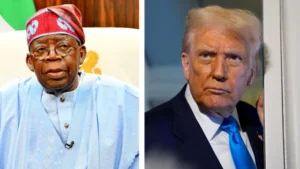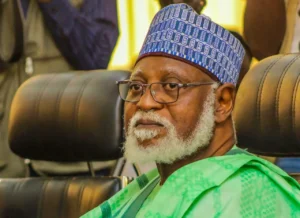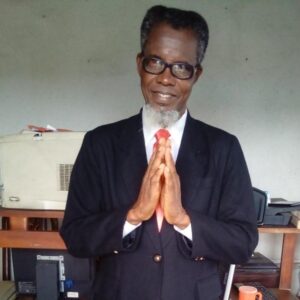THE CREDIBILITY OF INDIAN DEMOCRACY

The practice of democracy in India is a complex and multifaceted subject, deeply rooted in the country’s history, culture, and socio-political landscape.
The one-time speech of the Indian President sheds light on the principles and values that underpin Indian democracy, offering a platform to reflect on its credibility and the challenges it faces.
The Essence of Indian Democracy
India, the world’s largest democracy, boasts a population of over 1.4 billion people and a diverse tapestry of cultures, languages, and religions. The Indian Constitution, adopted in 1950, enshrines the principles of justice, liberty, equality, and fraternity, serving as the bedrock of its democratic framework.
The President, as the ceremonial head of state, often articulates the vision and values of this democracy, emphasizing the importance of inclusivity, representation, and the rule of law.
In the speech, the President likely highlighted several key aspects of Indian democracy:
- Inclusivity and Representation: India’s democratic system is designed to represent its vast diversity. The President may have pointed out that the electoral process allows for participation from various social, economic, and cultural backgrounds, ensuring that marginalized voices are heard. This inclusivity is a cornerstone of democracy, contrasting sharply with nations that claim democratic values but fail to provide equal representation.
- Rule of Law: The President might have underscored the importance of the rule of law in maintaining democratic integrity. In India, the judiciary plays a crucial role in upholding constitutional rights and freedoms, providing a check on the powers of the executive and legislative branches. This commitment to the rule of law is essential for fostering trust in democratic institutions.
- Freedom of Expression: A vibrant democracy thrives on the free exchange of ideas. The President may have discussed the significance of freedom of speech and the press in India, which, despite facing challenges, remains a vital aspect of the democratic fabric. This contrasts with countries that suppress dissent and curtail media freedoms, undermining the very essence of democracy.
- Electoral Integrity: The President likely addressed the robustness of India’s electoral process, managed by the Election Commission, which conducts free and fair elections. This institutional independence is crucial for maintaining public confidence in the democratic process, especially in contrast to nations where electoral fraud and manipulation are prevalent.
Challenges to Indian Democracy
While the President’s statements may reflect a strong commitment to democratic ideals, it is essential to acknowledge the challenges that Indian democracy faces. Issues such as political polarization, social unrest, and threats to civil liberties are areas of concern that can undermine democratic principles. The President’s acknowledgment of these challenges would demonstrate a realistic understanding of the complexities involved in governing a diverse nation.
A Call to Double-Standard Nations
In addressing nations that profess to practice democracy while exhibiting double standards, the Indian President’s statements could serve as a powerful reminder of the true essence of democracy. The contrast between India’s democratic practices and those of countries that engage in authoritarianism or selective enforcement of democratic principles is stark.
- Accountability and Transparency: The President’s emphasis on accountability in governance can serve as a model for nations that struggle with corruption and lack of transparency. True democracy requires leaders to be answerable to the people, fostering a culture of trust and responsibility.
- Empowerment of Citizens: The President may have highlighted the importance of empowering citizens through education and civic engagement. Democracies thrive when citizens are informed and active participants in the political process, a lesson for nations where civic engagement is stifled.
- Respect for Human Rights: The commitment to human rights is fundamental to any democracy. The President’s advocacy for the protection of individual rights can resonate with countries that fail to uphold these principles, urging them to reflect on their practices and strive for genuine democratic governance. Conclusion
The speech of the Indian President serves as a vital discourse on the principles of democracy and the unique challenges faced by India. By articulating the values of inclusivity, rule of law, freedom of expression, and electoral integrity, the President not only reinforces the credibility of Indian democracy but also offers a compelling narrative to nations grappling with the true meaning of democratic governance. In a world where the ideals of democracy are often compromised, India’s experience can serve as both a beacon of hope and a call to action for nations to embrace the true spirit of democracy.




